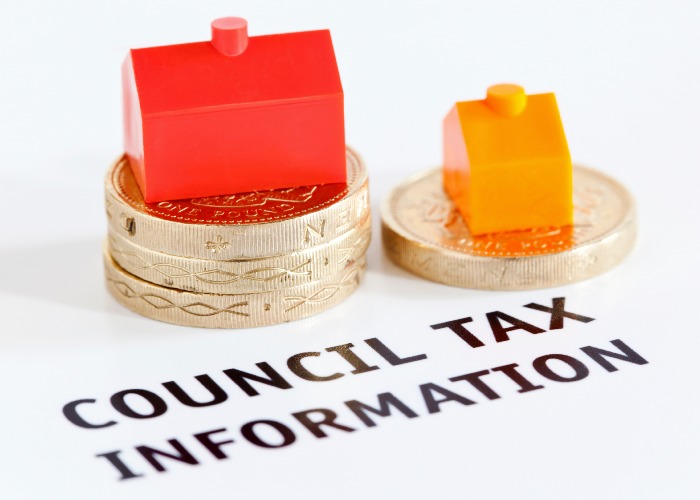loveMONEY election manifesto: it's time to overhaul Council Tax

When Council Tax was rolled out 25 years ago, the bands were hastily put together. As property values have changed, the system is now completely unfit for purpose.
As UK voters prepare to go to the polls for the General Election on 8 June, tax has once again emerged as a dividing issue.
The Labour Party has vowed that only the wealthiest will have to pay more tax, while the Tories are flip-flopping on a so-called 'dementia tax' to fund social care.
Tax is such a loaded issue that elections can be won or lost on these policies and the parties are working hard to limit increases, but still be able to fund their promises.
Rather than focussing on Income Tax and National Insurance, the Government should revise Council Tax bands.
How it’s calculated
Council Tax was introduced in 1993 to replace the hated Poll Tax.
When the Government was putting together the bands for the tax, it used valuations by estate agents, local authorities and others to help. It was a mammoth task, and in many cases the banding was approximate at best.
Over the past quarter of a century, the make-up of cities has changed dramatically. Whole neighbourhoods which were once exclusively working-class social housing estates has seen property prices sky-rocket, while deprived rural areas might have seen property values drop.
Wales revalued their bands in 2003 and adjusted Council Tax rates accordingly in 2005. Scotland followed suit in 2007. So what has held England back?
Politically, it can be tough for any politician to make the case to revalue Council Tax bands, as it would inevitably lead to some households having to pay higher rates. So governments have largely ignored the problem.
Not fit for purpose
In England, the ratio between the highest rates and the lowest is about three to one, and even though that sounds like a lot, that’s many times lower than the difference between the highest and lowest valued houses.
The current bands are simply not fit for purpose anymore as those living in less valuable properties are paying much higher rates as a percentage of the value of their homes.
“In the interests of equity, it is important that a tax based on relative property values should reflect actual values, rather than those from over a quarter of century ago,” Ian Fletcher, the director of policy for real estate at the British Property Federation said in the Financial Times.
Part of the issue is that property values have risen sharply in the 25 years since the bands were calculated, but the tax was not updated accordingly. The European Commission and the pressure groups like the British Property Federation have long called for the bands to be revalued in order to rectify the shortcomings of the original valuations, but also to more adequately reflect property values in England today.
Even Scotland and Wales, where bands have been reviewed could do with more drastic reform – this is not an England-only problem.
“Successive governments have been terrified of the consequences of any revaluation,” Tony Travers, professor in the Department of Government at the London School of Economics told the FT. “The longer you leave it without changing, the more painful would be the changes.”
Earn cashback on household bills with these top current accounts
Councils under pressure
In practice, reviewing Council Tax bands will likely mean a tax hike for swathes of the population, particularly those living in areas that have seen property values skyrocket recently. Though it will likely be unpalatable for many, by keeping Council Tax bands in their 1993 state, we are depriving councils of valuable resources in a time of near crisis.
Due to budget cuts since 2010, many councils are facing financial difficulties. A recent poll by the Local Government Information Unit (LGIU) revealed that over 40% of all councils expected to have to make “cuts in frontline services, which will be evident to the public”. This figure rose to 71% of councils responsible for delivering social care.
Councils have been raising Council Tax rates to atone for the funding gap left by sweeping cuts, but there is a cap at how much rates can go up. If a council wants to increase bills by more than 2%, they must hold a local referendum. The same LGIU survey revealed that 94% of council are planning to increase tax this year – five years ago 100% of councils who responded to the survey had frozen rates.
If Council Tax bands were reviewed and higher value property owners were paying a more equitable share, councils would likely see a rise in revenue derived from tax allowing them to plug the shortfalls in social care and other frontline services.
The issue, of course, is political. Let’s not forget that the shambolic Poll Tax, levied on individuals between 1991 and 1993, contributed to Margaret Thatcher’s demise as Prime Minister. It will take a brave government to accept the public outcry to review Council Tax bands. But it's unquestionably the fair thing to do.
More pledges from the loveMONEY election manifesto:
Scrap the State Pension triple lock now
Stamp Duty needs another makeover
Make taxes more transparent: merge Income Tax and National Insurance
Comments
Be the first to comment
Do you want to comment on this article? You need to be signed in for this feature